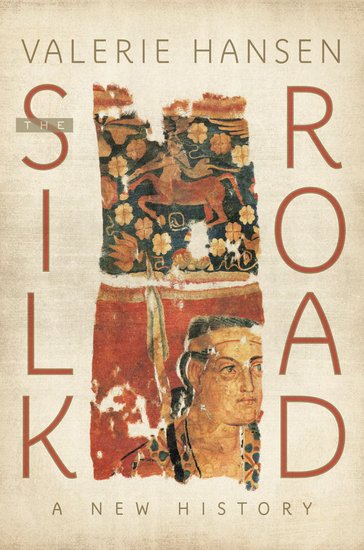By Valerie Hansen
“You have made a grave error in deciding to focus on the history of the Silk Road. The most important, and the most interesting, period in all of Chinese history is the third century, after the overthrow of the Han dynasty, when China was divided into three major kingdoms.”
The Beijing taxi driver was dead earnest. Like many other drivers he listened regularly to radio broadcasts about Chinese history. At that moment, he was listening to a storyteller perform The Romance of Three Kingdoms and there was nothing I could say to persuade him that newly discovered documents made the history of the Silk Road more exciting to me.
 Other drivers also liked to talk about history. When one driver told me that his favorite Chinese emperor was Nurhaci, the father of the man who founded the Qing dynasty in 1636, I asked if Nurhaci could count since he ruled in Manchuria but not all of China. “Of course,” the driver replied. “He was the real founder of the dynasty,” and he then proceeded to narrate the major battles that Nurhaci had won. His source? A multi-volume survey of Chinese history that he had read during the Cultural Revolution as a young factory worker.
Other drivers also liked to talk about history. When one driver told me that his favorite Chinese emperor was Nurhaci, the father of the man who founded the Qing dynasty in 1636, I asked if Nurhaci could count since he ruled in Manchuria but not all of China. “Of course,” the driver replied. “He was the real founder of the dynasty,” and he then proceeded to narrate the major battles that Nurhaci had won. His source? A multi-volume survey of Chinese history that he had read during the Cultural Revolution as a young factory worker.
Another driver was a Manchu who remembered me from a ride I’d taken four years earlier. (Foreigners don’t all look alike, I guess.) He drove just long enough every day to make 350 Renminbi (about sixty dollars) and then went home either to hunt migratory birds (he assured me that multiple varieties survived if you knew where to look for them) or to participate in a barter market that he and his Manchu friends had organized. With his cheery, relaxed attitude, he could easily have been the descendant of one of Lao She’s opera-loving Manchu relatives that he wrote about in his engrossing memoir of Manchu life in pre-1911 Beijing, Beneath the Red Banner.
Other taxi drivers tried to teach me some Chinese. As we debated which route to my destination would have the least traffic, I often heard local expressions like “whether you hug it in front of you or carry it behind you, it’s equally heavy,” which meant “six of one, half dozen of the other.” (Read: don’t get your hopes up, lady. All routes are equally awful.)
One driver recounted so many jokes whose punchline involved weird contortions of the expression niubi that my face turned red. Niubi literally means “cow cunt,” but nowadays the young and hip use it (or just niu) as a synonym for ku, the Chinese pronunciation of “cool.”
Conversations could turn serious, especially when drivers learned that I’d been in Beijing in Tiananmen spring. One driver refused to say anything about 1989 on our first meeting, but, several months later, when he picked me up again, told me about a cousin serving in the army who had cleared students from the square and a classmate of his sister who had been killed that night.
Even though I have been talking to Beijing taxi drivers since 1983, on my first visit, I was surprised this past year by how often and how openly drivers complained about corruption and the government. All the taxis have a listening device on the dashboard on the righthand side of the window, but the drivers explained that they could turn the devices off and spoke freely.
This is one of the funny paradoxes of modern Chinese life. You can express your opinions anywhere no one is watching or listening, and for the poor drivers breathing in Beijing’s air all day long in creeping traffic, why not open up to a total stranger?
Valerie Hansen is Professor of History at Yale University. Her books include The Silk Road: A New History, The Open Empire: A History of China to 1600, Negotiating Daily Life in Traditional China: How Ordinary People Used Contracts, 600-1400, Changing Gods in Medieval China, 1127-1276, and, with Kenneth R. Curtis, Voyages in World History.
Subscribe to the OUPblog via email or RSS.
Subscribe to only history articles on the OUPblog via email or RSS.
View more about this book on the ![]()
![]()
Beijing skyline and traffic jam on ring road, China. Photo by coryz, iStockphoto.



![Ten new books to read this Women’s History Month [reading list]](https://oupblog.wpenginepowered.com/wp-content/uploads/2022/03/Floating-open-book-480x185.jpg)
Recent Comments
There are currently no comments.